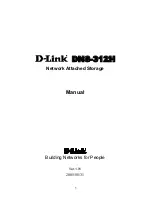
Diagnostic tools and Setup Utilities 65
Diagnostic tools and Setup Utilities
This chapter provides an overview of the Power-on Self-Test (POST), the POST error messages, and
BIOS, SAS and SATA setup utilities.
BIOS Software
The server uses BIOS to boot up the system. BIOS software is a ROM-based firmware that allows
reliability, manageability, and connectivity for server platforms. This software contains a set of
programs permanently stored in an EEPROM chipset located on the system board. These programs
assist in managing, initializing, and testing the hardware devices installed on the computer.
BIOS software allows you to:
•
Perform configuration from the BIOS Setup Utility
Using the Setup Utility, you can install, configure, and optimize the hardware devices on the
system board. In addition, you can set various features such as serial console redirection, PXE
boot, and much more.
•
Initialize hardware at boot up using POST routines
During power-on or warm reset, the BIOS perform Power-on Self-Test (POST) routines to test
system components, to allocate resource for various hardware devices, and to prepare the
system to boot to various operating systems.
BIOS Setup Utility
The HP server BIOS Setup Utility is used to configure five primary menu selections:
•
Main
•
Advanced
•
Boot
•
Security
•
Exit
Accessing the BIOS Setup Utility
1.
Turn on the monitor and server.
2.
If the server is already turned on, save your data and exit all open applications, then restart the
server.
3.
When the HP logo is displayed during POST, press F10 into BIOS Setup Utility. If you fail to
press F10 before POST is completed, you will need to restart the server.
4.
The first page displayed is the Main menu showing the Setup Utility menu bar. Use the left (
←
)
and right (
→
) arrow keys to move between selections on the menu bar. Use the up (
↑
) and down
(
↓
) arrow keys to select items within a menu.
Summary of Contents for ProLiant SL165s G7
Page 12: ...Customer self repair 12 ...
Page 13: ...Customer self repair 13 ...
Page 14: ...Customer self repair 14 ...
Page 15: ...Customer self repair 15 ...
Page 19: ...Illustrated parts catalog 19 ...
Page 24: ...Illustrated parts catalog 24 ...
Page 55: ...Removal and Replacement Procedures 55 Figure 38 Installing the system fan ...
















































